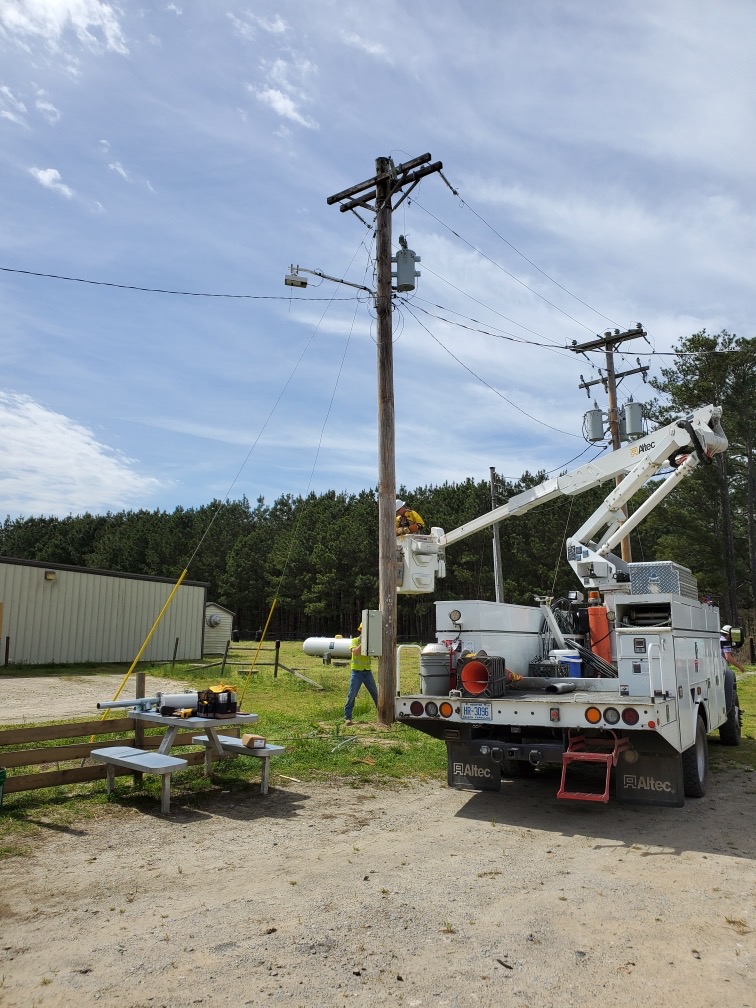
Eric Cunningham was worried about his students.
As superintendent of the Halifax County School District in North Carolina, he knew that his 2,300 kids already faced hunger and other challenges of living in a low-income rural community. By early April, schools were closed in response to the COVID-19 pandemic and, without widespread internet access in the county, children were bound to fall behind in their learning.
That’s when the trucks from Aulander-based Roanoke Electric Cooperative arrived, ready to install a free, public Wi-Fi hotspot in school parking lots.
“It was a blessing,” said Cunningham. “We’re 100% free lunch, which means a lot of our students don’t have access to the internet for home use. We have to look at other means to support them. What I’ve learned from this pandemic is that the internet is needed like electricity, especially when it comes to learning.”
The quick hotspot buildout by Roanoke Electric is part of a trend among co-op broadband providers eager to keep their communities connected during the pandemic. Hotspot locations have included churches, parks, restaurants and co-op offices across rural America. Users can connect to work, do schoolwork, watch movies or shop, all from the safety of their vehicles.
In Fayetteville, Arkansas, OzarksGo, a subsidiary of Ozarks Electric Cooperative, partnered with several local school districts to create free Wi-Fi hotspots, including on school buses. Initially, a school district equipped the buses with Wi-Fi technology for cellular internet connections, then parked them in areas convenient to families. When this proved too expensive and slow for multiple users, the co-op delivered a superior solution through its fiber broadband network.
The hotspots are now connected to OzarksGo’s fiber optic network, offering high-performance internet connections.
“The addition of OzarksGo-provided fiber optic lines has been very beneficial for our students during this unprecedented COVID-19 pandemic,” said Jeremy Mangrum, superintendent of the Elkins School District. “The increased speed and capacity that we can now provide at these locations has allowed our students to complete their work more quickly and efficiently.”
Steve Bandy, general manager of OzarksGo, said he found the district’s effort inspiring.
“We know how important broadband access is, especially now, and we were happy to help with this innovative solution,” he said.
Back in North Carolina, Cunningham said co-op hotspots are helping level the playing field for rural students during the pandemic by letting them work digitally rather than waiting for paper packets to arrive in the mail. Students without computers are using their cellphones to keep up with classwork and meet with their teachers.
“An entire new world is opening up for our children because of this,” Cunningham said.
Cathy Cash is a staff writer at NRECA.
Read More on the electric co-op response to the COVID-19 Pandemic
See NRECA’s COVID-19 hub on cooperative.com for key resources for co-ops, including guidance on business continuity planning and communication, as well as event schedule changes.